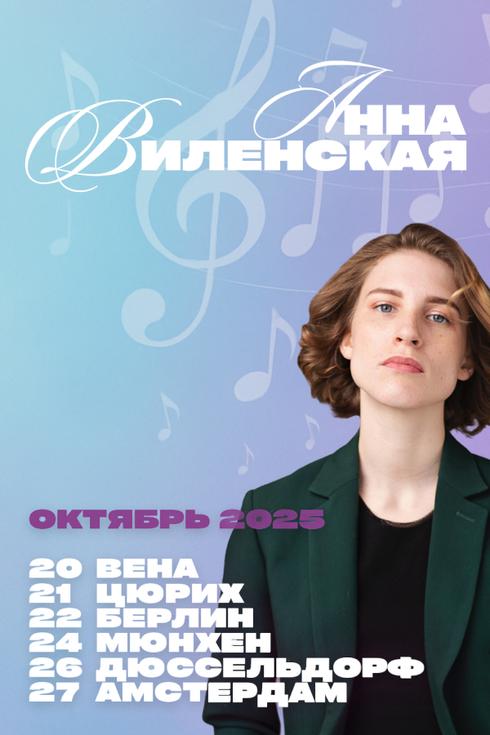
Anna Vilenska’s Lectures in Europe 2025
Anna Vilenska’s Lectures in Europe: Music from Classical to AI
Anna Vilenska is a musicologist, lecturer, and researcher of contemporary music. She has reinvented the traditional format of music lectures, making them visual, accessible, emotional, and useful for the audience. In October, Vilenska will give a series of lectures in major European cities. The program spans classical music and jazz, avant-garde and background music, the role of women in music history, and new horizons opened by artificial intelligence.
The lectures will take place in the following cities: Vienna, Zurich, Berlin, Munich, Düsseldorf, Amsterdam.
Vienna — “How Music Became Classical”
A lecture on why “classical” became high culture. How the term “classical music” emerged, why dedicated concert halls were built, and where the reverent attitude toward Beethoven and other composers came from. A discussion on whether we should overcome the “glass partition” between the listener and culture.
Zurich — “AI and Music: Evolution from 2014 to 2025”
From the first generative models to today’s algorithmic composers. How AI learned to write music, what mistakes it made, and why different models “think” differently. Final experiment — guessing who authored a fragment: a human or AI.
Berlin — “Jazz: Chords, Rhythms, Form — Recipe and History”
Jazz as music of the body and improvisation. What happens on stage, how styles differ, and why jazz is closer than it seems. A detailed breakdown of the chords, rhythms, and forms that make up this “mysterious” music.
Munich — “Background Music”
The history of background music — from Brian Eno’s ambient and melodies for aerophobic passengers to elevator compositions and on-hold tones. How the brain perceives such music and why it carries the imprint of an entire era.
Düsseldorf — “Avant-garde: What Was That?”
The rise and decline of the 20th-century musical avant-garde. Why composers turned to radical experiments and why many later abandoned these practices. A look at key figures, movements, and the relevance of the avant-garde today.
Amsterdam — “Women in Music: from Hildegard to Taylor Swift”
The history of women composers from Hildegard of Bingen to Taylor Swift. What it meant to be a woman in the musical world of different eras, how their work differed from men’s, and whether it can be called equal. A search for common threads in the biographies and destinies of women composers across centuries.
Anna Vilenska is a musicologist, lecturer, and researcher of contemporary music. She has reinvented the traditional format of music lectures, making them visual, accessible, emotional, and useful for the audience. In October, Vilenska will give a series of lectures in major European cities. The program spans classical music and jazz, avant-garde and background music, the role of women in music history, and new horizons opened by artificial intelligence.
The lectures will take place in the following cities: Vienna, Zurich, Berlin, Munich, Düsseldorf, Amsterdam.
Vienna — “How Music Became Classical”
A lecture on why “classical” became high culture. How the term “classical music” emerged, why dedicated concert halls were built, and where the reverent attitude toward Beethoven and other composers came from. A discussion on whether we should overcome the “glass partition” between the listener and culture.
Zurich — “AI and Music: Evolution from 2014 to 2025”
From the first generative models to today’s algorithmic composers. How AI learned to write music, what mistakes it made, and why different models “think” differently. Final experiment — guessing who authored a fragment: a human or AI.
Berlin — “Jazz: Chords, Rhythms, Form — Recipe and History”
Jazz as music of the body and improvisation. What happens on stage, how styles differ, and why jazz is closer than it seems. A detailed breakdown of the chords, rhythms, and forms that make up this “mysterious” music.
Munich — “Background Music”
The history of background music — from Brian Eno’s ambient and melodies for aerophobic passengers to elevator compositions and on-hold tones. How the brain perceives such music and why it carries the imprint of an entire era.
Düsseldorf — “Avant-garde: What Was That?”
The rise and decline of the 20th-century musical avant-garde. Why composers turned to radical experiments and why many later abandoned these practices. A look at key figures, movements, and the relevance of the avant-garde today.
Amsterdam — “Women in Music: from Hildegard to Taylor Swift”
The history of women composers from Hildegard of Bingen to Taylor Swift. What it meant to be a woman in the musical world of different eras, how their work differed from men’s, and whether it can be called equal. A search for common threads in the biographies and destinies of women composers across centuries.
| Date | 26.10.2025 |
| Time | 19:00 |
| Venue | Palais Wittgenstein |
| Address | Bilker Str. 7, 40213 Düsseldorf |
| Phone | +49 611 94 49 8000 |
| Buy ticket | |
| All dates and venues | |
Upcoming events
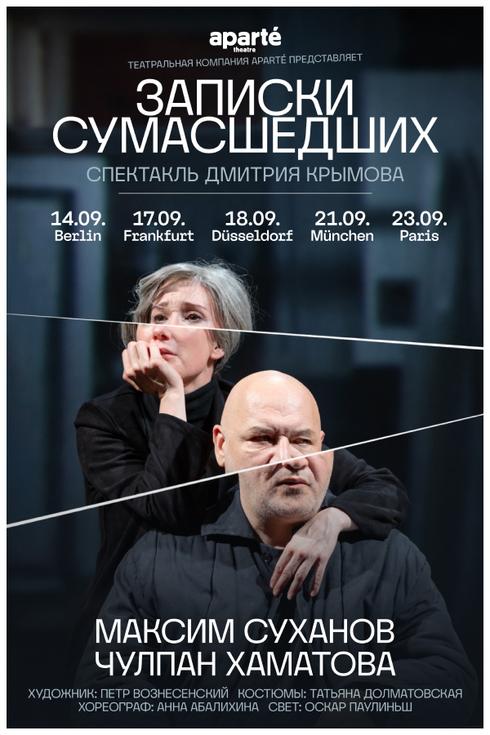
Dmitry Krymov's play "Notes of Madmen"
Gasteig / Carl-Orff-Saal
Rosenheimerstr. 5, 81667 München
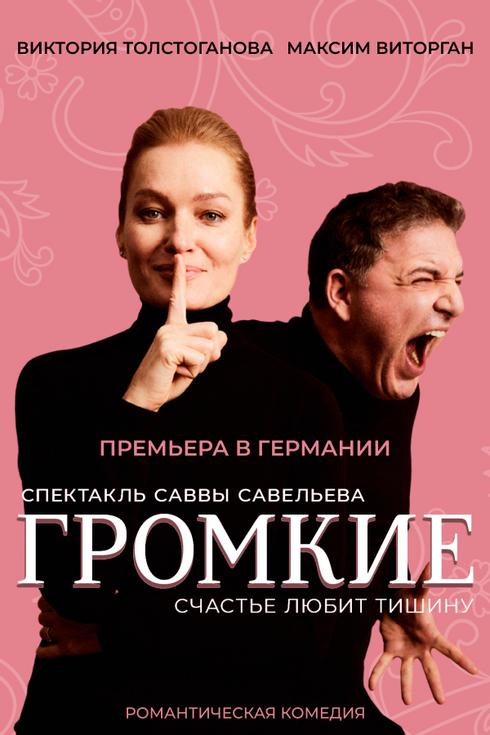
Спектакль «Громкие» в Мюнхене
Gasteig / Carl-Orff-Saal
Rosenheimerstr. 5, 81667 München
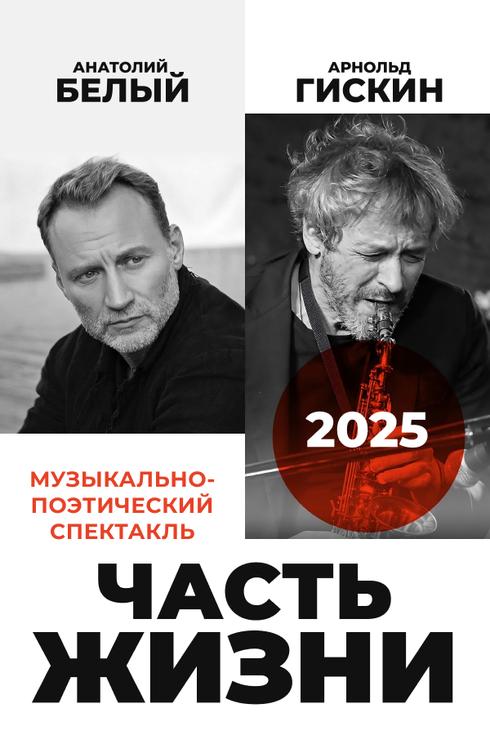
“Part of Life” – Musical and Poetic Performance in Germany
Fat Cat / Black Box
Rosenheimerstr. 5, 81667 München
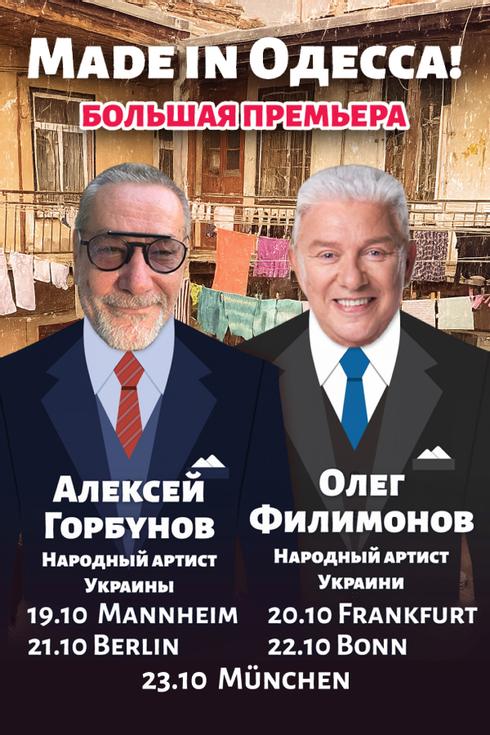
Play “Made in Odessa” in Germany 2025
Gasteig / Carl-Orff-Saal
Rosenheimerstr. 5, 81667 München

Anna Vilenska’s Lectures in Europe 2025
Kulturzentrum Trudering
Wasserburger Landstraße 32, 81825 München
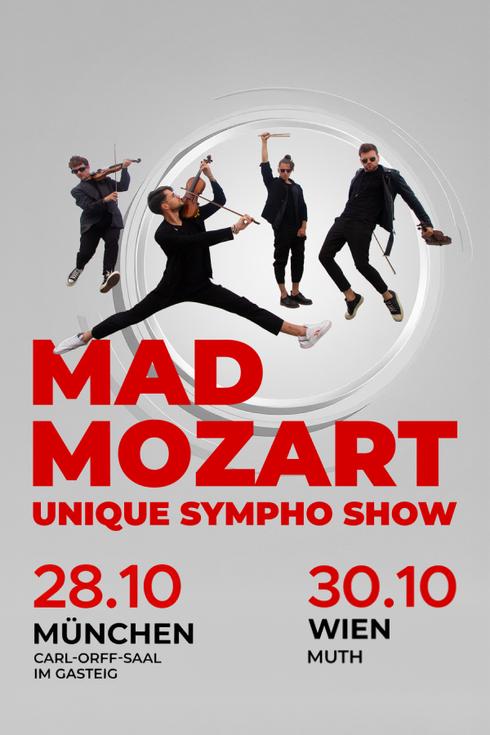
Mad Mozart in München 2025
Gasteig / Carl-Orff-Saal
Rosenheimerstr. 5, 81667 München
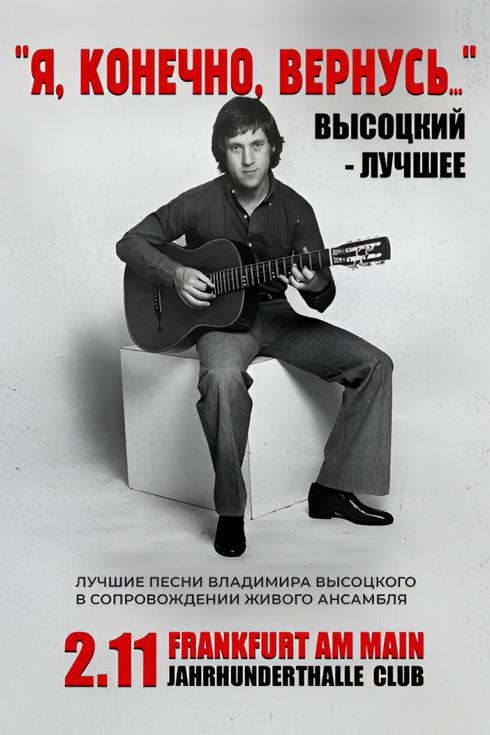
Vladimir Vysotsky. The Return of the Legend
Kulturzentrum Trudering
Wasserburger Landstraße 32, 81825 München

Bi-2 Band – Concerts in Germany 2025
Olympiahalle
Spiridon-Louis-Ring 21, 80809 München
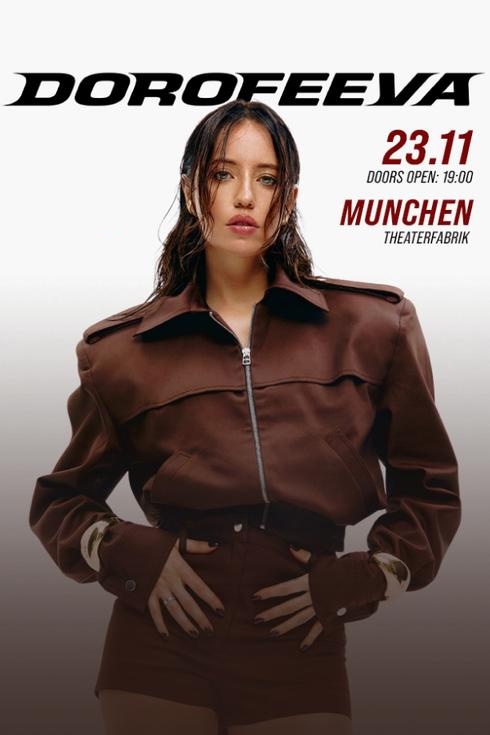
DOROFEEVA. European Tour 2025
Theaterfabrik München
Musenbergstraße 40, 81929 München

Наталья Ремиш в Мюнхене 2025
Tagungszentrum Kolpinghaus
Adolf-Kolping-Straße 1, 80336 München
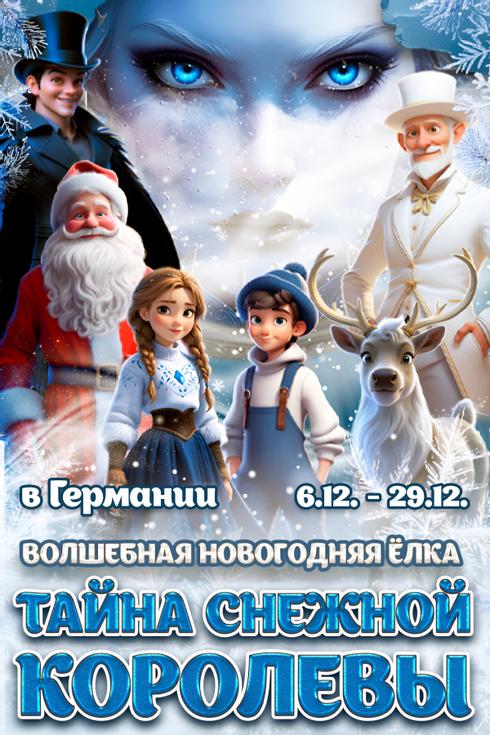
Новогодняя детская Ёлка в Мюнхене «Тайна Снежной Королевы» 2025
Kulturzentrum Trudering
Wasserburger Landstraße 32, 81825 München

Новогодняя детская елка в Мюнхене 2025. Театр Юного Зрителя
Anton-Fingerle-Bildungszentrum
Schlierseestrasse 47 , 81539 München
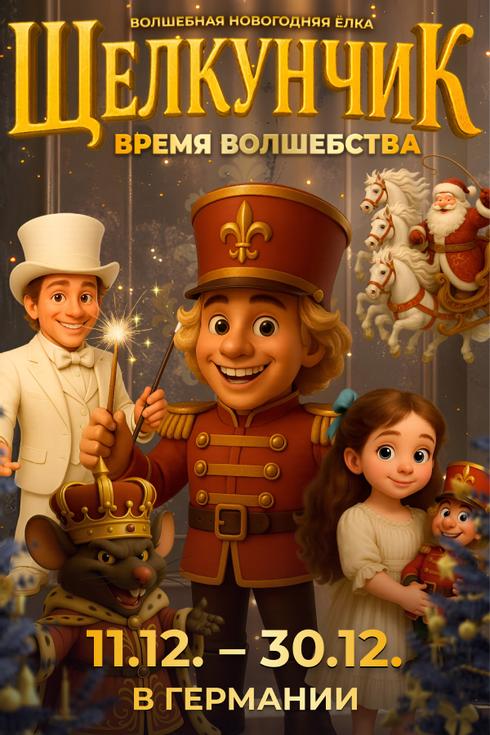
Новогодняя детская елка «Щелкунчик» в Мюнхене 2025
Kulturzentrum Trudering
Wasserburger Landstraße 32, 81825 München

Новогодняя детская елка «Щелкунчик» в Регенсбурге 2025
Kolpinghaus St. Erhard
Adolph-Kolping-Straße 1, 93047 Regensburg

Новогодняя детская елка «Щелкунчик» в Ингольштате 2025
Stadttheater Ingolstadt Festsaal
Schloßlände 1, 85049 Ingolstadt

Новогодняя детская Ёлка в Германии «Тайна Снежной Королевы» 2025
Edwin Scharff Haus
Silcherstraße 40, 89231 Neu Ulm

Новогодняя детская Ёлка во Фридрихсхафене «Тайна Снежной Королевы» 2025
Graf Zeppelin Haus
Olgastraße 20, 88045 Friedrichshafen
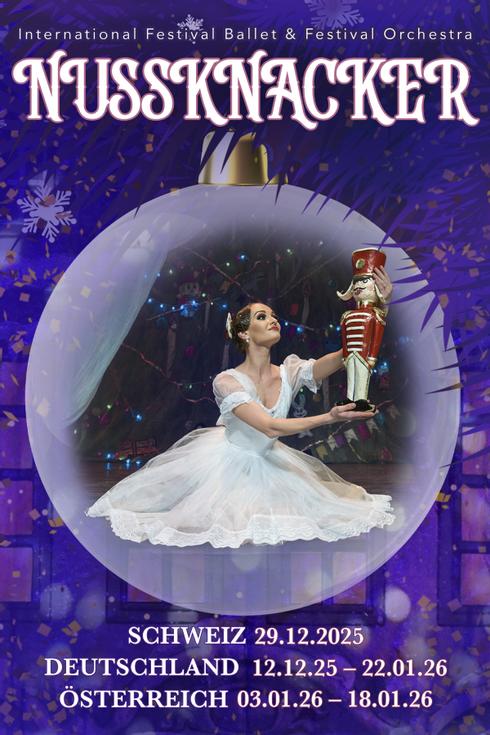
"The Nutcracker" & live orchestra 2025-2026
Ratiopharm Arena
Europastraße 25, 89231 Neu-Ulm
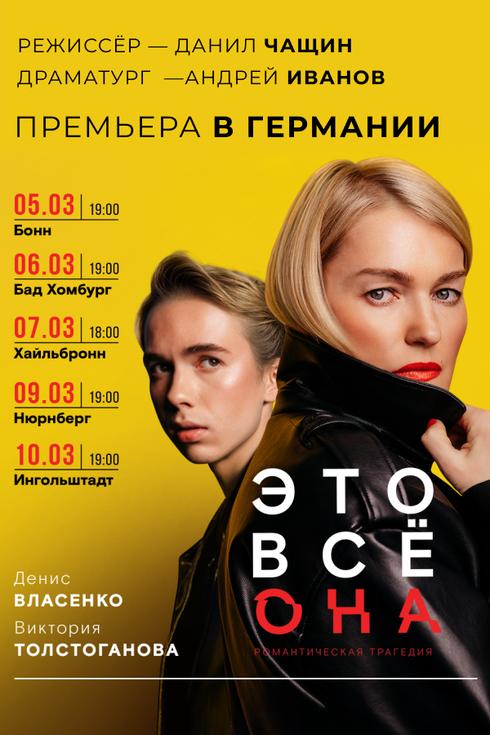
“It’s All Her” – Play in Germany 2026
Stadttheater Ingolstadt Festsaal
Schloßlände 1, 85049 Ingolstadt
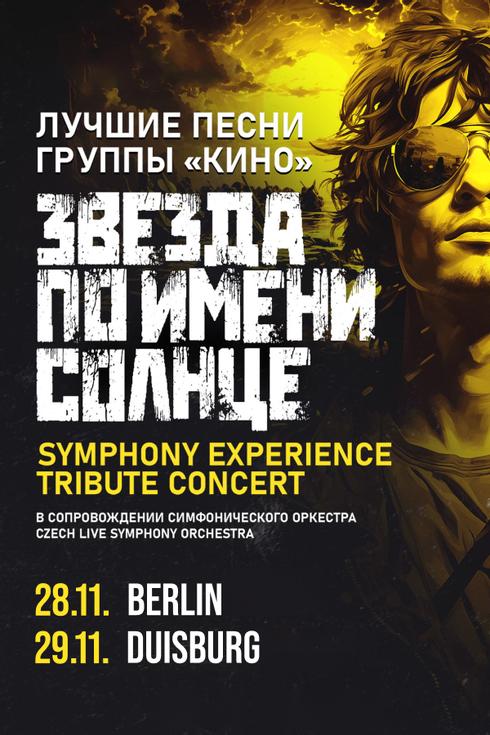
Лучшие песни группы «Кино» в Мюнхене
Gasteig / Carl-Orff-Saal
Rosenheimerstr. 5, 81667 München
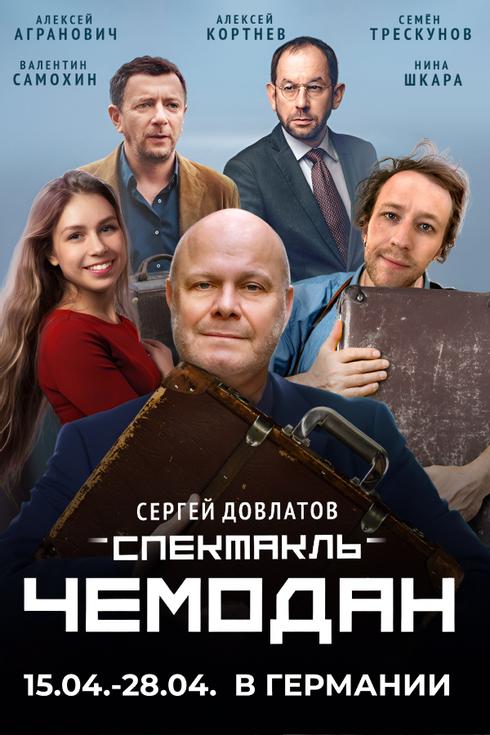
Спектакль «ЧЕМОДАН» по рассказам Сергея Довлатова в Мюнхене
Gasteig
Rosenheimer Straße 5, 81667 München












